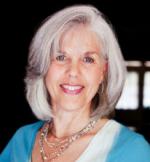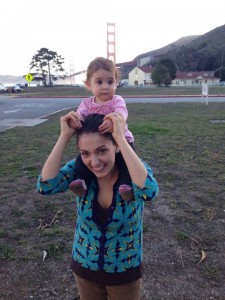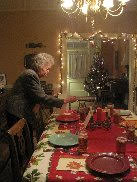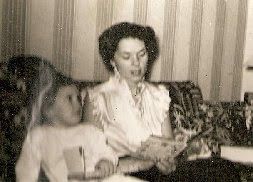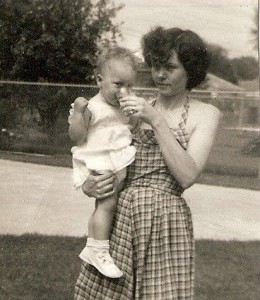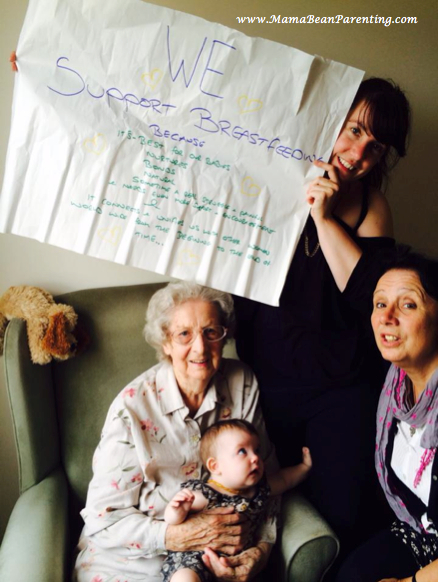Editor’s note: This post was originally published on Oct. 22, 2008, but it carries a timeless message of the payoffs of giving presence to our children, allowing them to develop independence on their own developmental timeline.
By Kayris Wall of The Great Walls of Baltimore and Mommy, What’s For Dinner?
 One day, when my son was a baby, I took him to the grocery store. He started to cry, and as I lifted him out of his car seat, a strange woman walked by. “If you do that every time he cries, he’ll never learn to be independent,” she said over her shoulder.
One day, when my son was a baby, I took him to the grocery store. He started to cry, and as I lifted him out of his car seat, a strange woman walked by. “If you do that every time he cries, he’ll never learn to be independent,” she said over her shoulder.
I was a brand-new mom and hadn’t developed my laser-like Mind Your Own Business stare yet, so I mumbled something about him being hungry. As I watched her walk away, I thought to myself, Is she kidding? He’s only 2 months old. He’s not supposed to be independent!
That baby just turned 4 years old recently, and has been joined by a sister, now almost 2 years old. Sometimes I still think about that stranger in the grocery store. I wish I would run into her again so I could show her my independent, friendly, confident little boy and tell her, “See this? It’s because I’ve always been there for him.”
I’m not claiming to be a perfect parent by any means. I have my strengths and my many, many weaknesses. The most difficult one by far is controlling my quick temper and being patient instead. It’s something I struggle with daily. But if there is one thing that I’m absolutely confident that I’m doing right, it’s that my children know that I’m there for them when they need me.
Until recently, I was primarily a stay-at-home mom. In the beginning, I provided the most basic needs to my infant son. I breastfed him when he was hungry, changed him when he was wet, rocked him to sleep when he was tired. I spent hours just holding him, and he went everywhere with me. It was fun. He was my little buddy. Two years later, our duo expanded when I had another baby, and my son was always there when I nursed, rocked and changed his sister.
Sometimes it was lonely and I felt isolated a lot, but seeing the end result makes it worth it. Beyond feeding and changing and snuggling, I was there when my son brought me an acorn and asked, “What’s this thing?” I was there to bandage their wounds when they fell, help them learn to climb steps, to tie shoes and wipe noses. There were a lot of times when they didn’t need me, but I was there on the sidelines in a benign fashion, just in case they did. When they are grown and look back to the early years of their lives, I hope they’ll always see my presence, even if it’s just as a shadowy figure around the outskirts.
In the past year, I picked up some daytime hours at my part-time job. While I’m working, my mom stays with my children. This past September, my son started preschool three days a week. Both transitions went smoothly; in fact, the separation was harder on me than it was on my kids! But I am convinced that these first years, those times in which I was never far away, helped shape them into independent, adaptable little people and that is why they were just fine was I was suddenly not there. They knew that I would come back.
I’m not advocating that all mothers quit their jobs to become stay-at-home parents. I enjoy my time away, I’m good at my job, and I like what I do. And as my children grow and parenting them becomes more complex, I find that working outside of the home helps make me a better parent. This is partly because I can interact with other adults and gain perspective from other parents, but also because the time that I do have with them is that much more precious. It makes it that much easier to put aside my to-do list and to focus 100% of my attention on them.
My son is thriving in school, and I’m so impressed with the program he is in that I may sign my daughter up for the 3-year-old program next fall. Eventually, both will be in school full time, both will make friends, play sports and not need my presence in the same way that they do now. But it’s okay, because they will both be prepared to go out into the world, knowing that they are loved and cherished. They will be ready. And I will be ready, too.


